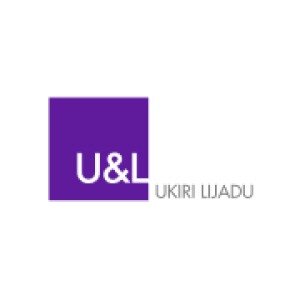Best Public-Private Partnerships (PPP) Lawyers in Maitama
Share your needs with us, get contacted by law firms.
Free. Takes 2 min.
List of the best lawyers in Maitama, Nigeria
About Public-Private Partnerships (PPP) Law in Maitama, Nigeria
Public-Private Partnerships, commonly referred to as PPPs, are collaborative agreements between government entities and private sector companies designed to deliver public services or develop infrastructure projects. In Maitama, Abuja - Nigeria's seat of government - PPPs are increasingly being used to address infrastructure gaps and improve public service delivery. PPP arrangements typically involve contractual agreements that outline the responsibilities, risks, and benefits for both public and private partners. The legal framework governing PPPs ensures transparency, accountability, and the delivery of value for money in these projects.
Why You May Need a Lawyer
Engaging in a PPP project in Maitama can be complex due to the intricate legal, regulatory, and financial considerations involved. Common situations where a lawyer's assistance is crucial include:
- Drafting and reviewing PPP contracts and concession agreements - Negotiating terms between public and private parties - Advising on compliance with Nigerian federal and Abuja-specific PPP laws - Assisting with regulatory approvals and permits - Advising on dispute resolution mechanisms - Guiding due diligence and risk assessment processes - Ensuring protection of interests for either party in the contract - Advising on taxation and financial structuring for PPP projects - Representing clients in negotiations with government agencies - Handling breach of contract or performance-related disputes
Local Laws Overview
In Maitama, PPPs are primarily governed by a combination of federal laws and guidelines and those established by the Federal Capital Territory (FCT) Administration. Key statutes and policies include:
- The Infrastructure Concession Regulatory Commission (ICRC) Act which sets out the rules for private investments in federal infrastructure and public assets - National PPP Policy, which outlines the general principles and procedures for PPPs in Nigeria - Abuja Investment and Property Development Company (AIPDC) policies, which influence PPP projects within Maitama and other districts - Relevant provisions in the Nigerian Public Procurement Act related to transparent project bidding and selection - The FCT Administration's guidelines on land use, zoning, and development approvals - Sector-specific regulations, depending on the type of PPP project (such as transportation, power, healthcare, etc.)
Understanding these regulations is essential for structuring PPP agreements, obtaining project approvals, and ensuring legal compliance throughout the project's life cycle.
Frequently Asked Questions
What is a Public-Private Partnership (PPP)?
A PPP is a collaboration between a government agency and a private sector company to finance, design, implement, or operate a public service or infrastructure project.
Are PPPs legal in Maitama, Abuja?
Yes, PPPs are legal in Maitama and are supported by both national and local legislation and policies.
Which government agencies regulate PPPs in Maitama?
Key regulatory agencies include the Infrastructure Concession Regulatory Commission (ICRC), the Federal Capital Territory Administration (FCTA), and sector-specific regulators such as the Nigerian Electricity Regulatory Commission or the Federal Ministry of Works and Housing.
What types of projects can be delivered through PPP in Maitama?
PPPs are commonly used for projects like roads, bridges, schools, hospitals, water supply systems, housing, and public transportation, among others.
Do I need government approval to participate in a PPP project?
Yes, private sector participants must obtain relevant approvals, permits, and often undergo a bidding process in accordance with procurement and PPP laws.
How are PPP contracts structured?
PPPs typically involve detailed contracts or concession agreements specifying roles, responsibilities, payment mechanisms, risk allocation, performance standards, and dispute resolution mechanisms.
What risks are involved for private partners in a PPP?
Private partners may face risks related to financing, construction delays, regulatory changes, demand shortfalls, and political or legal uncertainties.
Can foreign companies participate in PPP projects in Maitama?
Yes, foreign companies can engage in PPP projects, subject to Nigerian laws on foreign investment, partnership with local entities, and sector-specific requirements.
What happens if a dispute arises in a PPP project?
Most PPP contracts include dispute resolution clauses that may provide for negotiation, mediation, arbitration, or in some cases, litigation in courts.
How can I ensure my interests are protected in a PPP arrangement?
It is crucial to seek legal advice from lawyers experienced in PPP law to help draft, review, and negotiate contracts, ensure compliance, and protect your interests throughout the project.
Additional Resources
If you are seeking further information, consider the following key resources related to PPPs in Maitama and across Nigeria:
- Infrastructure Concession Regulatory Commission (ICRC) - Bureau of Public Procurement (BPP) - Federal Capital Territory Administration (FCTA), Department of Public-Private Partnerships - Abuja Investment and Property Development Company (AIPDC) - Nigerian Bar Association, Abuja Branch - Sector-specific government ministries (Works and Housing, Power, Health, etc.) - Reputable law firms in Maitama with PPP experience - Online legal education platforms and publications on Nigerian PPP law
Next Steps
If you are considering engaging in a PPP project in Maitama or are seeking legal advice regarding your involvement, you should:
- Research and identify reputable lawyers or law firms in Maitama experienced in PPP law - Gather all relevant documents and information about the project or transaction - Prepare a list of questions and outline your objectives for the partnership - Schedule a consultation to discuss your needs and determine the scope of legal services required - Evaluate legal opinions on compliance, risk, and regulatory requirements before final commitment - Follow up regularly on legal updates, regulatory changes, and best practices in PPP projects to ensure continued compliance and project success
Lawzana helps you find the best lawyers and law firms in Maitama through a curated and pre-screened list of qualified legal professionals. Our platform offers rankings and detailed profiles of attorneys and law firms, allowing you to compare based on practice areas, including Public-Private Partnerships (PPP), experience, and client feedback.
Each profile includes a description of the firm's areas of practice, client reviews, team members and partners, year of establishment, spoken languages, office locations, contact information, social media presence, and any published articles or resources. Most firms on our platform speak English and are experienced in both local and international legal matters.
Get a quote from top-rated law firms in Maitama, Nigeria — quickly, securely, and without unnecessary hassle.
Disclaimer:
The information provided on this page is for general informational purposes only and does not constitute legal advice. While we strive to ensure the accuracy and relevance of the content, legal information may change over time, and interpretations of the law can vary. You should always consult with a qualified legal professional for advice specific to your situation.
We disclaim all liability for actions taken or not taken based on the content of this page. If you believe any information is incorrect or outdated, please contact us, and we will review and update it where appropriate.









